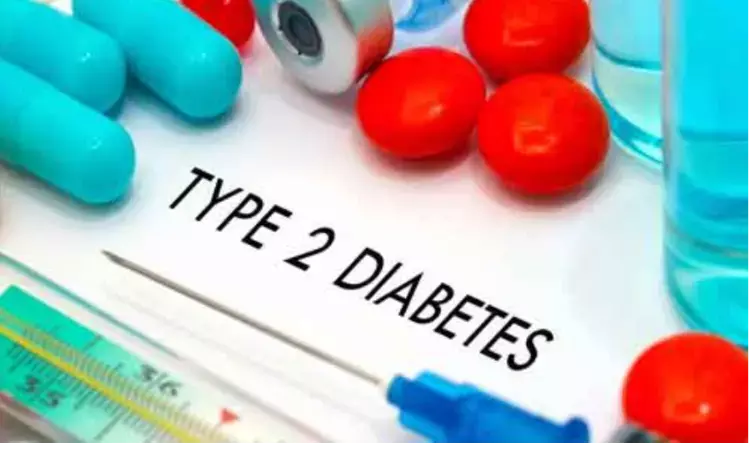- Home
- Medical news & Guidelines
- Anesthesiology
- Cardiology and CTVS
- Critical Care
- Dentistry
- Dermatology
- Diabetes and Endocrinology
- ENT
- Gastroenterology
- Medicine
- Nephrology
- Neurology
- Obstretics-Gynaecology
- Oncology
- Ophthalmology
- Orthopaedics
- Pediatrics-Neonatology
- Psychiatry
- Pulmonology
- Radiology
- Surgery
- Urology
- Laboratory Medicine
- Diet
- Nursing
- Paramedical
- Physiotherapy
- Health news
- Fact Check
- Bone Health Fact Check
- Brain Health Fact Check
- Cancer Related Fact Check
- Child Care Fact Check
- Dental and oral health fact check
- Diabetes and metabolic health fact check
- Diet and Nutrition Fact Check
- Eye and ENT Care Fact Check
- Fitness fact check
- Gut health fact check
- Heart health fact check
- Kidney health fact check
- Medical education fact check
- Men's health fact check
- Respiratory fact check
- Skin and hair care fact check
- Vaccine and Immunization fact check
- Women's health fact check
- AYUSH
- State News
- Andaman and Nicobar Islands
- Andhra Pradesh
- Arunachal Pradesh
- Assam
- Bihar
- Chandigarh
- Chattisgarh
- Dadra and Nagar Haveli
- Daman and Diu
- Delhi
- Goa
- Gujarat
- Haryana
- Himachal Pradesh
- Jammu & Kashmir
- Jharkhand
- Karnataka
- Kerala
- Ladakh
- Lakshadweep
- Madhya Pradesh
- Maharashtra
- Manipur
- Meghalaya
- Mizoram
- Nagaland
- Odisha
- Puducherry
- Punjab
- Rajasthan
- Sikkim
- Tamil Nadu
- Telangana
- Tripura
- Uttar Pradesh
- Uttrakhand
- West Bengal
- Medical Education
- Industry
SGLT2i tied to lower mortality and better outcomes than DPP4i, finds Study

Italy: Initiation of SGLT2 inhibitors under routine care versus initiation of DPP4 inhibitors leads to better cardiorenal outcomes and lower mortality in patients with type 2 diabetes, a recent study has pointed. The study is published in the journal Diabetes Research and Clinical Practice.
Both dipeptidyl peptidase-4 (DPP4) inhibitors and sodium-glucose cotransporter 2 (SGLT2) inhibitors are used for the treatment of type 2 diabetes that is inadequately controlled with insulin therapy. Yet, no comparison has been made between these two inhibitors. To fill this knowledge gap, Gian Paolo Fadini, Veneto Institute of Molecular Medicine, Padua, Italy, and colleagues aimed to compared cardiovascular outcomes of patients with type 2 diabetes (T2D) receiving SGLT2i or dipeptidyl DPP4i under routine care.
To determine the above, the researchers identified patients with T2D who initiated SGLT2i or DPP4i from an administrative claims database of >5,2M citizens from 2014 to 2018. Patients were matched by propensity scores. The primary outcome was the 3-point major adverse cardiovascular events (3P-MACE).
After matching, 3216 patients were included in each group (mean age 63 years, diabetes duration of 8.7 years, and 20% had cardiovascular disease). After a median follow-up of 18 months, the researchers found the following:
- The rate of 3P-MACE was lower among patients who initiated SGLT2i versus DPP4i (HR 0.74).
- Initiators of SGLT2i also showed significantly lower rates of myocardial infarction (HR 0.75), hospitalization for heart failure (HR 0.44) or cardiovascular causes (HR 0.72), and all-cause death (HR 0.49).
- Renal failure was less common with SGLT2i than with DPP4i.
- Results were consistent to those obtained in a meta-analysis of 10 observational studies on ∼1,5M patients.
Based on the above findings the authors concluded that, "Patients with T2D who initiated SGLT2i under routine care had better cardio-renal outcomes and lower all-cause mortality than similar patients who initiated DPP4i."
Reference:
The study titled, "Outcomes of patients with type 2 diabetes treated with SGLT-2 inhibitors versus DPP-4 inhibitors. An Italian real-world study in the context of other observational studies," is published in the journal Diabetes Research and Clinical Practice.
DOI: https://www.diabetesresearchclinicalpractice.com/article/S0168-8227(21)00383-1/fulltext
Dr Kamal Kant Kohli-MBBS, DTCD- a chest specialist with more than 30 years of practice and a flair for writing clinical articles, Dr Kamal Kant Kohli joined Medical Dialogues as a Chief Editor of Medical News. Besides writing articles, as an editor, he proofreads and verifies all the medical content published on Medical Dialogues including those coming from journals, studies,medical conferences,guidelines etc. Email: drkohli@medicaldialogues.in. Contact no. 011-43720751


